Carbon Positive Trial Update - October 2024
Added one year ago
By David France
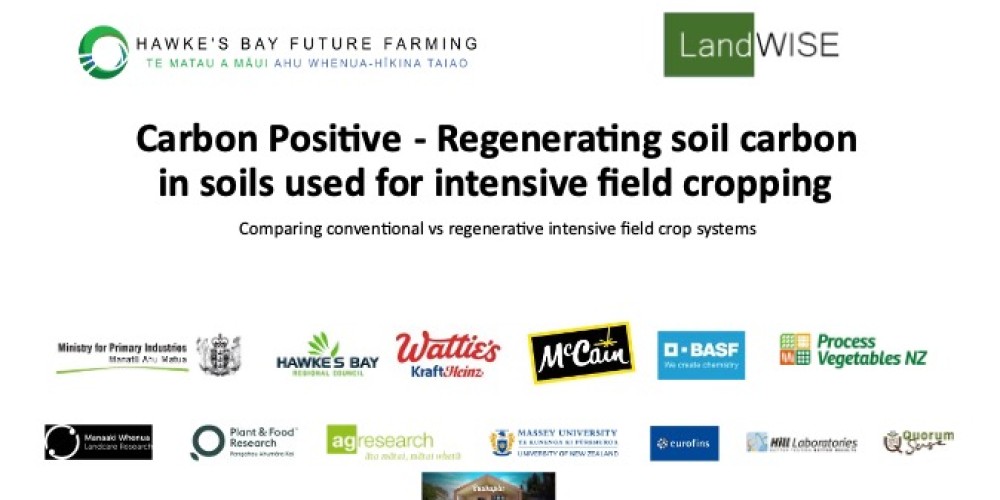
Thanks to TRS Hastings for providing the tractor and 2 metre Roller Crimper for the trial.
The Roller Crimper had an additional 400kg weights added to help crush the cover crop
stems.
The correct maturity of the cover crop is critical for effective termination by roller crimping.
Maturaty time depends on natural growing cycles, meaning some tolerance for termination timing needs to be factored into the growing program. This can be a challenge for intensive cropping planting cycles with set planting dates.
When using mixed cover crops, each species maturity date need to be aligned to have the best plant termination results from roller crimping.
This is all but impossible given each species different responses to unknown weather between planting and termination.
Cover crop termination may not be fully effective so additional management with either light cultivation or herbicide future to planting the next crops may be needed.
Roller Crimping
trials were conducted on several cover crop options, including:
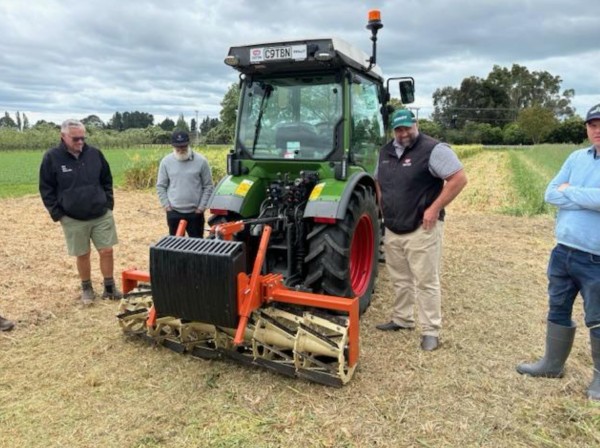
Tick Beans
Roller crimping tick beans was effective as a knock down and crimp. One trial plot was mulched as a comparison, and broke down very well and quickly.
Rye Corn was roller crimped, however wasn’t quite mature enough and meant the plants mostly sprung back up and kept growing.
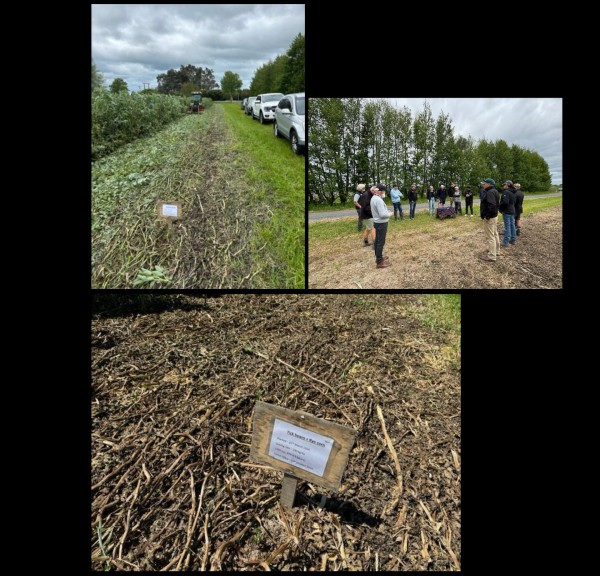
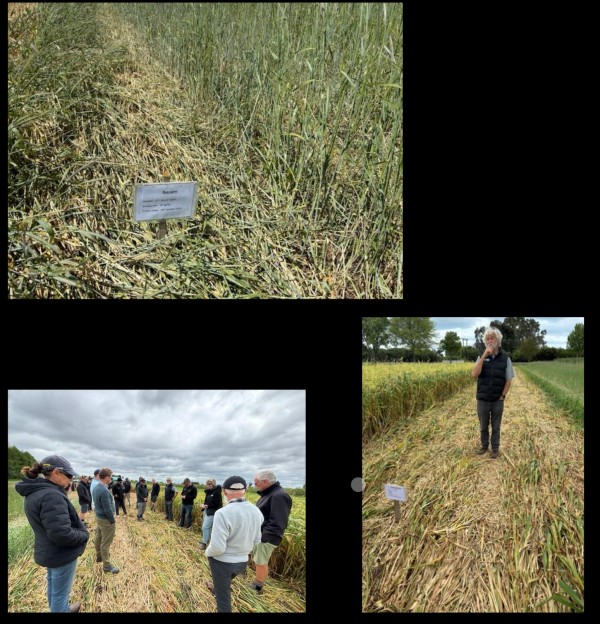
Regen Mix
Regen mix of Black Oats, Buck Wheat, Vetch, Clovers, Tillage Radish and Sunflowers. This was also the Carbon Positive regen treatment cover crop for which roller crimping was the planned method of termination.
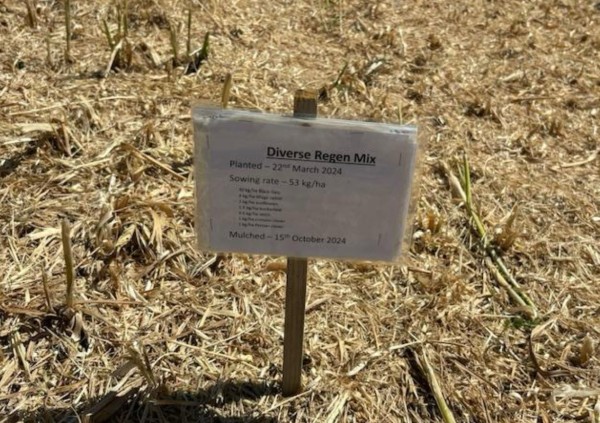
The diversified mix aimed to combine root depths from Tillage Radish to help break up the pan, Black Oats for soil structure and legumes to fix nitrogen.
The sunflowers and buck wheat were included to enhance biodiversity, but were
soon knocked out by early frosts.
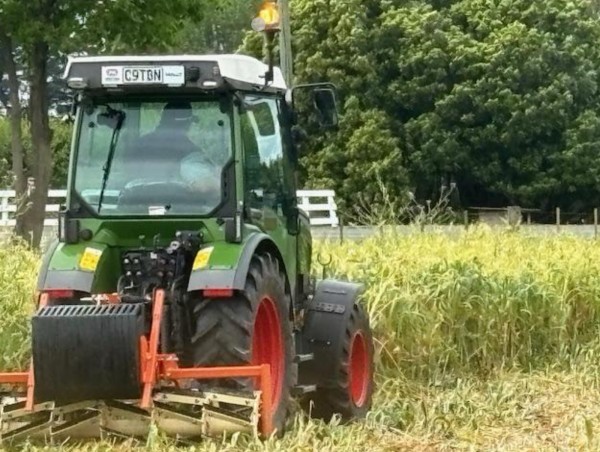
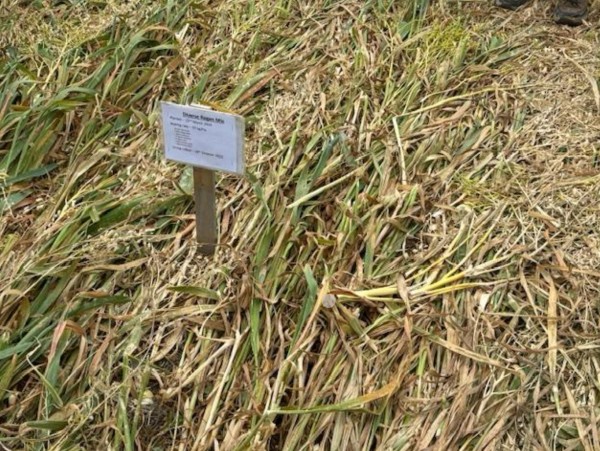
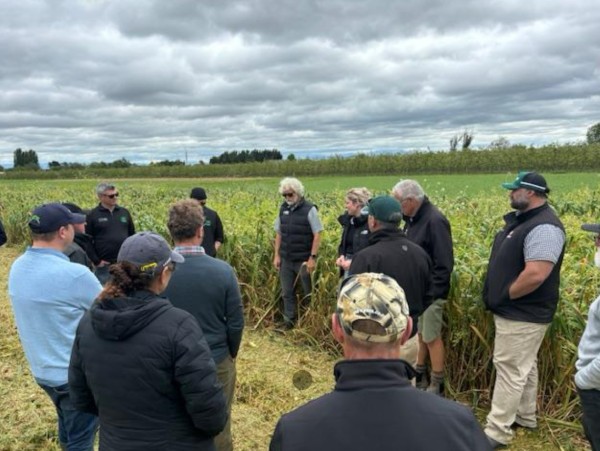
This selection proved challenging for the Carbon Positive trials, as the Tillage Radish
matured earlier than the oats, which added the challenge of potentially self-seeding “weeds” in the future, something to be avoided. The roller crimper effectively crushed and flattened the cover crop and will be monitored over the next few weeks to see if it offers an effective termination method.
The roller crimping plots allowed trials to be undertaken outside the main Carbon Positive trial area. The intention is learning what can work within the main trial in future seasons.
The roller crimping trials are ongoing with some cover crop still waiting for maturity and
others that have been roller crimped observing the effectiveness of termination, weed
germinations rates, and consideration of other interventions to establish viable soils for
planting crops.
The Carbon Positive regen cover crop itself was terminated by mulching,
followed two weeks later by light discing, which may present a challenge with weed
germination when beans are to be planted. The Carbon Positive Operations
Advisory Group continues watching and adjusting plans as required.
Be the first to leave a comment.
Leave a comment
All comments are reviewed before they are published on the website. Your email address will not be published.
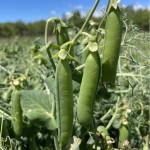
Carbon Positive Trial Update – February 2025

Carbon Positive Update

Community Engagement and Knowledge Sharing Strengthen the Carbon Positive Project
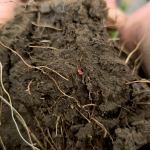
Are We Changing Soil Carbon Yet? Three Years In, the Jury’s Still Out

Farewell to Trustee Phil Schofield – A Foundational Leader of the HBFFCT
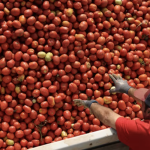

Join the conversation